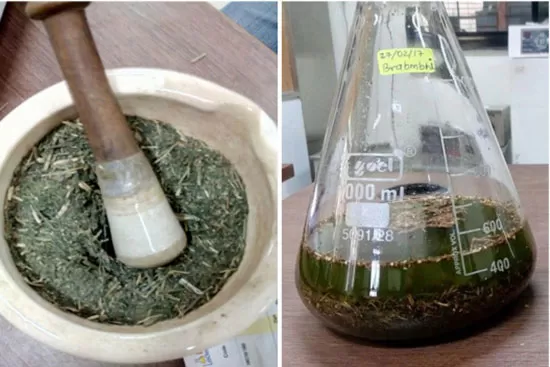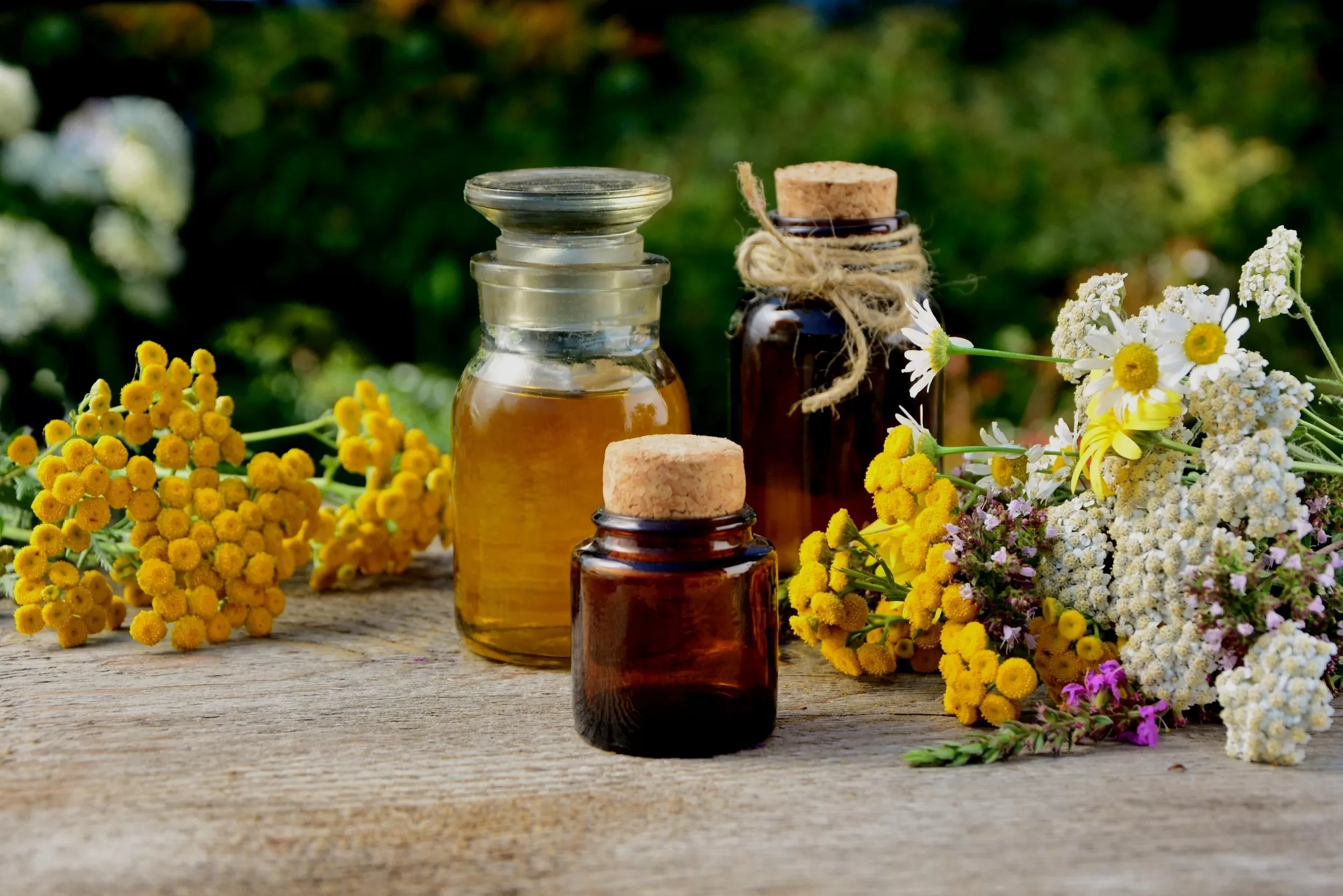- 0086-571-85302990
- sales@greenskybio.com
What are plant-based extracts?
2025-03-23
In the quest for optimal health and wellness, plant-based extracts have become increasingly popular among consumers and researchers alike. These extracts, derived from various parts of plants such as leaves, roots, bark, seeds, and flowers, offer a concentrated source of the active compounds that are responsible for plants' therapeutic effects. With a rich history rooted in traditional medicine, these natural derivatives are now gaining recognition in modern science for their health benefits and versatility. This article explores the nature and applications of plant-based extracts, highlighting their significance in the wellness industry and the careful considerations required for their use.
What Are Plant-Based Extracts?
Plant-based extracts are concentrated forms of specific constituents found within the plant. The extraction process typically involves using solvents like water, ethanol, or glycerin to isolate and concentrate the desired phytochemicals. These phytochemicals, including flavonoids, alkaloids, tannins, terpenes, and polyphenols, contribute to the plant’s medicinal and nutritional properties.
The extracts can vary in form, including liquid extracts, powders, or capsules, making them adaptable for various applications in dietary supplements, pharmaceuticals, skincare, and food products. The potency and efficacy of these extracts depend on the methods used in extraction, the plant's inherent properties, and the standardization processes employed to ensure consistent concentration levels.
Health Benefits of Plant-Based Extracts
The health benefits of plant-based extracts are wide-ranging, owing to the diverse nature of phytochemicals present in different plants. Some common applications and benefits include:
1. Antioxidant Properties
Many plant-based extracts are rich in antioxidants, which help combat oxidative stress by neutralizing free radicals in the body. This can reduce the risk of chronic diseases such as heart disease, diabetes, and cancer. Extracts from berries, green tea, grapes, and turmeric are well-known for their antioxidant capabilities.
2. Anti-Inflammatory Effects
Certain plant extracts can reduce inflammation, providing relief from conditions like arthritis, allergies, and digestive disorders. Ginger, boswellia, and Curcumin (from turmeric) are examples of extracts that exhibit potent anti-inflammatory effects, working similarly to non-steroidal anti-inflammatory drugs but with fewer side effects.
3. Immune Support
Plants like echinacea, elderberry, and astragalus are recognized for their ability to bolster the immune system. These extracts help enhance the body's resistance to infections and can shorten the duration of illnesses like the common cold.
4. Mood and Cognitive Enhancers
Some extracts, such as ginkgo biloba and St. John’s wort, are employed to improve mood and cognitive function. These plant derivatives can help alleviate symptoms of depression, anxiety, and memory loss, contributing to mental well-being.
5. Weight Management
Certain plant extracts like green tea, Garcinia cambogia, and cayenne pepper are popular for weight management. They often function by enhancing metabolism, reducing appetite, or blocking fat absorption.
6. Skincare Benefits
In the realm of skincare, plant-based extracts such as aloe vera, chamomile, and licorice root are praised for their soothing, healing, and anti-aging properties. They are incorporated into creams, lotions, and serums for their ability to rejuvenate and protect the skin.
Utilization in Industry
Plant-based extracts are extensively utilized in several industries, reflecting their versatility and consumer demand:
- Dietary Supplements: The supplement industry heavily relies on plant-based extracts for their natural health-promoting qualities. Products range from simple herbal capsules to complex formulations targeting specific health concerns.
- Pharmaceuticals: In pharmaceuticals, plant extracts play a critical role in both traditional medicine and modern drug development. Compounds found in plants contribute to the development of antibiotics, analgesics, and other therapeutic agents.
- Cosmetics and Skincare: The cosmetic industry benefits from plant extracts due to their hydrating, anti-aging, and calming properties, catering to consumers seeking natural and effective skincare solutions.
- Food and Beverage: Plant extracts like vanilla, peppermint, and cinnamon are commonly used for flavoring, while others like matcha or coconut are used for their health benefits, aligning with the trend towards functional foods.
Considerations for Use
While plant-based extracts offer numerous benefits, several considerations are essential for safe and effective use:
- Quality and Source: The quality of plant-based extracts can vary widely based on the source and manufacturing practices. Choosing products with transparent sourcing and rigorous quality control ensures safety and efficacy.
- Standardization: Standardized extracts provide consistent levels of active ingredients, allowing for predictable results. Products not standardized may vary in potency, affecting their effectiveness.
- Potential Interactions: Extracts can interact with medications and other supplements, leading to unwanted side effects. Consulting with healthcare professionals, especially when dealing with chronic health conditions or pregnancy, is advisable.
- Allergies and Sensitivities: Individuals should be aware of potential allergic reactions to certain plant extracts, particularly if they have known sensitivities to specific plants or food allergens.
Conclusion
Plant-based extracts represent a powerful and natural means of enhancing health and wellness. As consumers increasingly prioritize natural solutions, these extracts offer a promising avenue for addressing a wide array of health concerns. Equipped with rigorous research and responsible usage, plant-based extracts can become vital tools for personal health management and within various industries. Recognizing their potential and integrating them wisely emphasizes nature’s contribution to advancing human well-being in harmony with scientific understanding.
- ▶ Hesperidin
- ▶ citrus bioflavonoids
- ▶ plant extract
- ▶ lycopene
- ▶ Diosmin
- ▶ Grape seed extract
- ▶ Sea buckthorn Juice Powder
- ▶ Beetroot powder
- ▶ Hops Extract
- ▶ Artichoke Extract
- ▶ Reishi mushroom extract
- ▶ Astaxanthin
- ▶ Green Tea Extract
- ▶ Curcumin Extract
- ▶ Horse Chestnut Extract
- ▶ Other Problems
- ▶ Boswellia Serrata Extract
- ▶ Resveratrol Extract
- ▶ Marigold Extract
- ▶ Grape Leaf Extract
- ▶ blog3
- ▶ blog4
- ▶ blog5
-
What are extracts made of?
2025-03-23
-
Extract Usage: A Comprehensive Guide
2025-03-23
-
Are plant extracts good for you?
2025-03-23
-
What Is a Plant Extract? A Deep Dive
2025-03-23
-
Golden Seal Extract
2025-03-23
-
Alfalfa Meal
2025-03-23
-
Cactus Extract
2025-03-23
-
Medicinal Marshmallow Extract
2025-03-23
-
Phyllanthus Emblica Extract
2025-03-23
-
Carrageenan Extract Powder
2025-03-23
-
Calendula Extract
2025-03-23
-
Senna Leaf Extract
2025-03-23
-
American Ginseng Root Extract
2025-03-23
-
Bitter Melon Extract
2025-03-23






























